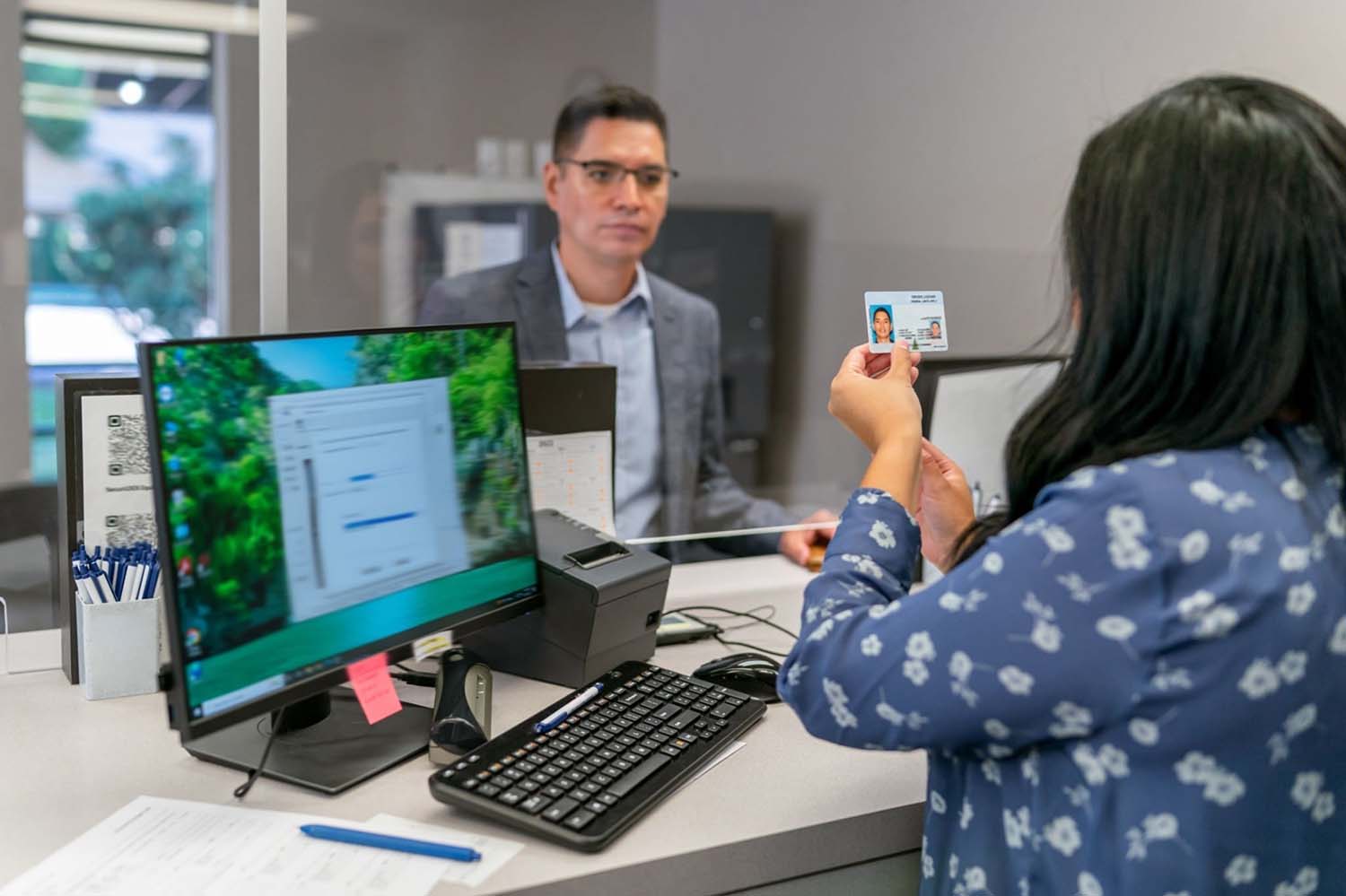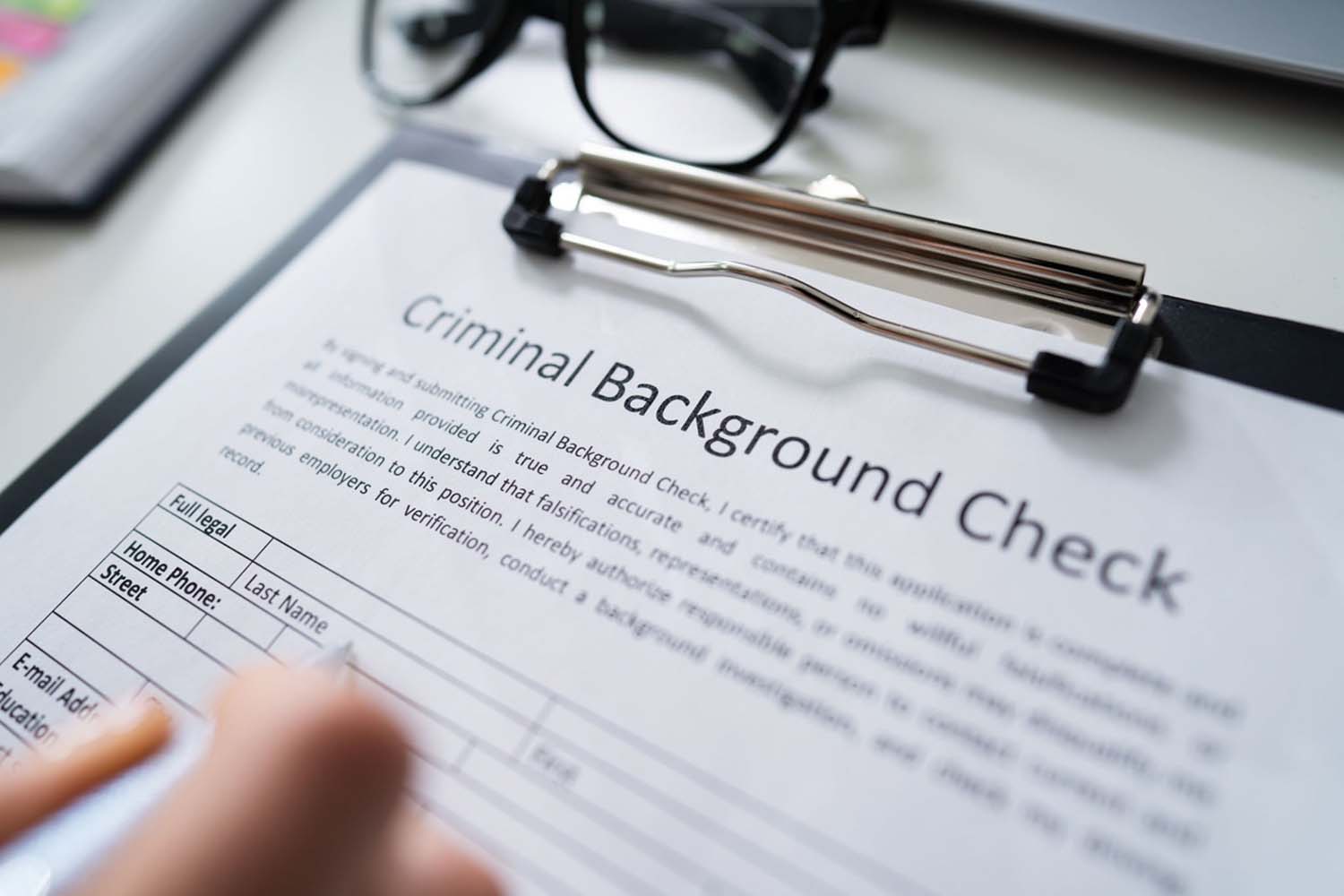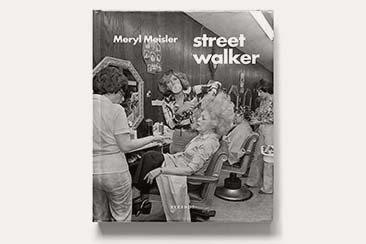Background checks can vary in how far back they go, depending on the type of check, its purpose, and the laws that apply. For instance, a background check for a job usually looks into your criminal history from the past seven years.
The ‘seven years rule’ refers to the standard that many background check companies follow of only reporting criminal convictions that are less than seven years old. This rule is not a federal law, but rather a guideline followed by many background check companies.
The purpose of the seven years rule is to strike a balance between providing relevant information to employers or landlords and giving individuals a chance to move on from past mistakes. However, it’s worth noting that some states have laws that restrict the reporting of criminal records for a certain period of time, so the seven years rule may not apply in all cases.
Some employers, though, may dig deeper and check your record from further back in time. Keep in mind, rules and regulations around background checks can be different from one place to another. To make sure you’re up to speed, it’s a good idea to do some research on the specific requirements for your area.
Remember that there are laws like the Fair Credit Reporting Act in the US, which limit the information that can be included in an employee background check and how it can be used.

What Types of Background Checks Are Available?
There are several types of background checks that can be performed, including:
Criminal Background Check: This type of check searches records for any history of arrest or conviction.
Employment Verification: This type of check verifies a person’s employment history, including past employers, job titles, and dates of employment.
Education Verification: This type of check verifies a person’s educational history, including degrees earned, institutions attended, and dates of attendance.
Credit Check: This type of check reviews a person’s credit history, including their credit score, outstanding debts, and payment history.
Driving Record Check: This type of check reviews a person’s driving history, including any accidents, traffic violations, and license suspensions.
Drug Test: This type of check tests for the presence of drugs or other substances in a person’s system.
Professional License Verification: This type of check verifies that a person holds a valid professional license in a particular field.

Criminal Background Checks
A criminal background check is a process that investigates an individual’s criminal records to determine if they have any history of arrest or conviction. This information can be used for a variety of purposes, such as employment, adoption, housing, and more.
Note that while criminal background checks can provide valuable information, they may not reveal all criminal activity, as the records searched can vary based on the type of check and the federal and state laws and regulations that apply.
Also, some laws, such as the Fair Credit Reporting Act (FCRA) in the United States, place limits on the types of information that can be included in an employment background check and how that information can be used.

Employment Verification
Employment verification is the process of confirming a person’s employment history, including past employers, job titles, and dates of employment. This information is used to ensure that an individual’s work history is accurate and can help an employer make informed hiring decisions.
Employment verification can be done by the employer themselves or by a third-party verification service. The process typically involves contacting the individual’s past employers and verifying the information they have provided.
The information provided through employment verification is only as accurate as the information provided by the individual’s past employers.
Employment verification is a valuable tool for employers and can provide valuable information for job seekers. By ensuring that your work history is accurate, you can increase your chances of being hired for the job you want!

Education Verification
Education verification is a process that confirms an individual’s educational history, including the degrees they have earned, the institutions they attended, and the dates they attended.
This information is often used by employers to verify the qualifications of job applicants and by educational institutions to verify the credentials of students.
Education verification can be done by the individual themselves or by a third-party verification service. The process typically involves contacting the educational institutions attended and verifying the information provided by the individual.
The information provided through education verification is only as accurate as the information provided by the educational institutions.

Credit Checks
Credit checks from potential employers refer to the practice of checking an individual’s credit report as part of the hiring process. During a credit check, an employer obtains a copy of the individual’s report and uses the information contained within it to make hiring decisions.
Employers may use credit checks to determine if an individual is financially responsible and if they have a history of managing their finances responsibly. This information can be used to assess an individual’s ability to handle money, manage their debts, and avoid financial difficulties.
If you’re asked to undergo a credit check as part of a job application, it’s important to review your report and ensure that the information contained within it is accurate.

Driving Record Checks
A driving record check is a process that investigates an individual’s driving history, including information such as traffic violations, accidents, and driving-related convictions.
This information is often used by employers to assess an individual’s driving abilities and to determine if they are a safe and responsible driver.
Driving record checks are commonly used for jobs that require driving, such as truck drivers, delivery drivers, and other transportation-related roles.
The information provided through a driving record check can help employers make informed hiring decisions and ensure the safety of their employees and the public.

Drug Tests
Drug tests are tests that are conducted to determine if an individual has used drugs, typically by analysing a sample of their urine, blood, hair, or saliva.
Drug tests from potential employers are used to assess an individual’s fitness for a particular job and to ensure the safety and well-being of their employees and the public.
Drug tests are commonly used for jobs that require a high level of safety, such as positions in transportation, healthcare, and other safety-sensitive industries.
The results of a drug test can be used by employers to make informed hiring decisions and to ensure that their employees are drug-free and able to perform their job duties safely.

Professional License Verification
Professional license verification is the process of checking the validity and status of a professional license held by an individual.
This verification is typically conducted by employers to ensure that the individual has the necessary qualifications and credentials to perform the duties required by their job.
Employers may conduct professional license verification to ensure that the individual has the necessary education, training, and experience to perform the job safely and effectively.
Professional license verification typically involves contacting the licensing authority, such as a state licensing board, and inquiring about the status of the individual’s license.
The licensing authority will provide information about the validity of the license, any disciplinary actions taken against the license holder, and other relevant information.

Background Checks FAQs
Who can perform a background check?
In most cases, a background search can be performed by employers, landlords, government agencies, and private companies that specialise in pre employment background checks.
Can an employment background check show everything about a person?
No, a background check is not a comprehensive report of a person’s entire life. It will show information that is publicly available and relevant to the purpose of the check, but it may not include all relevant information.
What sources of personal information does a background check pull from?
A background check can access a variety of sources of personal information to verify an individual’s background and history. Some of the most common sources include:
Criminal records: A background check may access criminal history databases to search for any history of arrest, conviction, or incarceration.
Court records: Court records can be searched to verify information such as bankruptcies, civil lawsuits, and other legal proceedings.
Employment and education verification: Employers can verify an individual’s employment and education history to ensure accuracy and to assess their qualifications for the job.
Credit reports: A background check may include a credit check to assess an individual’s financial responsibility and stability.
Driving records: A driving record check may be conducted for positions that require driving, such as delivery drivers or truck drivers, to assess an individual’s driving history and ability.
Drug test results: Drug test results may be included in a background check for positions that require a drug-free work environment or for positions in safety-sensitive industries.
The sources of information that are accessed during a background check can vary depending on the type of check and the federal and state laws and regulations that govern the use of such information.
How long does a background check take?
The time it takes to complete a background check can vary depending on the type of check being performed and the company or agency conducting the check. Some pre employment background checks can be completed in a matter of minutes, while others may take several days or longer.

Are background checks legal?
Yes, background checks are legal in most countries, including the United States. However, there are certain restrictions and state laws that govern how and when background checks can be performed.
In the United States, for example, the Fair Credit Reporting Act (FCRA) sets regulations for how background checks can be performed for employment purposes. The FCRA requires that the person being checked must provide written consent, and that the employer must provide certain notifications if information in the background check will be used to deny the person a job.
Do I need to consent to a background check?
In most cases, yes. If a background check is being performed for employment purposes, the employer must typically obtain written consent from the applicant.
What states follow the ‘seven-years rule’ for background checks?
The ‘seven-years rule’ is a general guideline that states that most criminal convictions can only be reported on a background check for seven years. This means that criminal convictions older than seven years are typically not considered by employers during the hiring process.
In general, the following states follow the 7-year rule for pre employment background checks:
— California
— Colorado
— Kansas
— Maryland
— Massachusetts
— Montana
— Nevada
— New York
— Texas
— Washington
Do note that the seven years rule is not an absolute limit and that some employers may consider criminal convictions older than seven years, depending on the nature of the crime and the specific requirements of the job.
What if the information on a background check is incorrect?
If you believe that the information on your background check is incorrect, you can take steps to dispute the information and have it corrected.
How can a person clear negative information such as criminal convictions from their records?
Clearing negative information from one’s records can be a difficult and time-consuming process, but it is possible. Here are some steps that a person can take to clear negative information from their records:
Request a copy of your records: Start by obtaining a copy of your criminal record, credit report, and other relevant records to determine what negative information needs to be addressed.
Correct errors: Review your records carefully and dispute any errors that you find. You can typically dispute errors with the relevant agency or bureau.
Seek legal assistance: If the negative information is a result of a criminal conviction, you may be able to have your record sealed or expunged through a legal process. A criminal defence attorney can assist you in navigating this process.
Negotiate with creditors: If the negative information is related to outstanding debts or a poor credit history, you may be able to negotiate with your creditors to have the information removed or corrected.
Address the underlying issue: In some cases, negative information may be a result of an underlying issue, such as addiction or financial hardship. Addressing the root cause of the issue can help to prevent future negative information from appearing on your record.
Not all negative information can be removed from records, and some negative information may remain on your record for life.

How can I check my criminal records?
There are several ways to check your criminal record, depending on location. In general, you can:
Request a copy from the police department: Contact the police department in the city where you reside and ask for a copy of your criminal record. Some police departments may charge a fee for this service.
Request a background check: You can request background checks from a private company that specializes in this service. This is a paid service and the cost may vary.
Check online: In some cases, you can check your criminal record online through a government website. This is typically only available for certain states and for specific types of criminal record checks.
Obtain a FBI Criminal History Report: You can obtain a FBI Criminal History Report by submitting your fingerprints to the FBI. This report will provide a detailed record of any federal arrests or convictions.
Not all arrest records are public, and access to some records may be restricted by law. If you have concerns about the accuracy of your record, you should take steps to correct any inaccuracies.
What is the Ban the Box campaign?
‘Ban the Box’ is a campaign that seeks to remove the criminal history checkbox from job applications and delay the inquiry into an applicant’s criminal history until later in the hiring process.
The goal of Ban the Box is to give people with arrest records a fair chance at employment by allowing them to be considered for their qualifications and skills first, rather than being immediately disqualified due to their criminal history.
Ban the Box has been adopted by a number of states, cities, and private companies, who have enacted laws or policies that restrict when and how an employer can ask about a job applicant’s criminal history.
The campaign aims to reduce discrimination against a candidate’s criminal history, improve public safety, and increase the number of people who are able to successfully re-enter society after serving time in prison.
In Conclusion
Background checks are vital for employers, landlords, and others to make informed decisions about potential hires, tenants, or individuals.
Background checks serve several purposes, including protecting public safety by screening for convicted felons, uncovering fraud, promoting accountability by providing a comprehensive overview of criminal, financial and employment histories, making informed decisions, and reducing legal liability.
Background checks ensure well-informed decisions for all parties involved.
| Author | Reviewed by ✅ |
|---|---|
| Philip Parks Career and Business Development Contributor Philip Parks is a career and business development writer with a focus on employment trends, resume building, and professional growth. With years of experience in the field, Philip provides practical advice and insights to help job seekers navigate the complexities of the job market. His engaging articles and resources empower readers to enhance their career prospects and achieve their professional goals. | James Davidson Editor in Chief/Founder, We Heart James Davidson is the Founder and Editor-in-Chief of We Heart, a leading lifestyle platform he has helmed for nearly 17 years. He has collaborated with top brands such as Audi, Veuve Clicquot, Samsung, and Google. Under his guidance, We Heart has grown from a niche magazine to a widely respected authority on all areas of lifestyle. With a background as a freelance travel writer, James brings a wealth of experience to his editorial work. |








